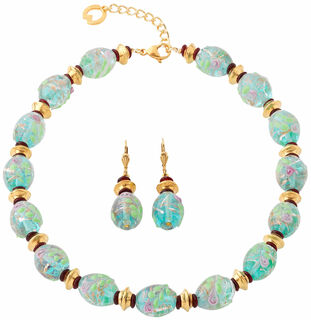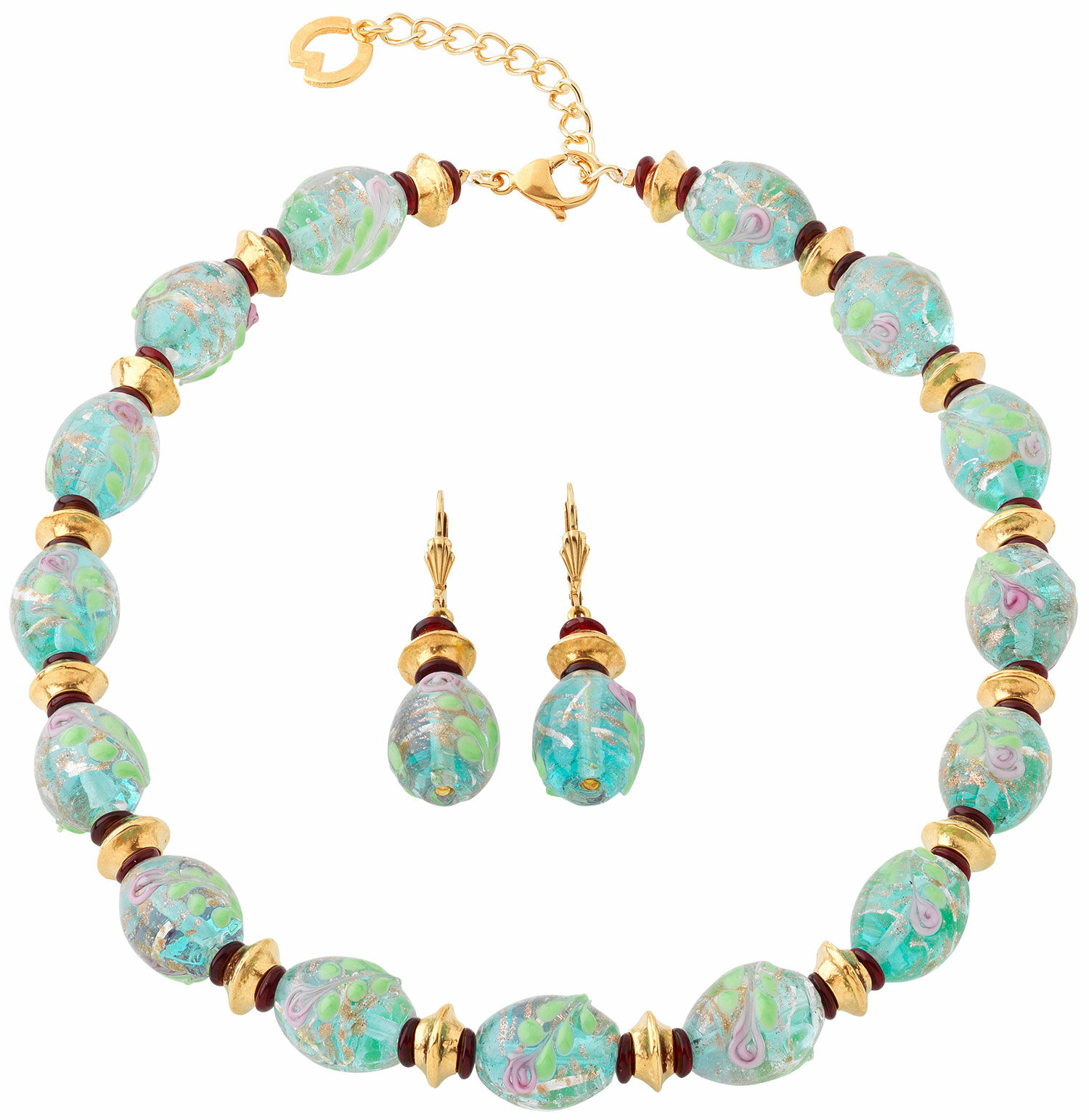Jewellery set "Nymphéas"
Jewellery set "Nymphéas"
Quick info
gold-plated brass | Murano glass beads | necklace: length 41-47 cm | earrings: size 1 x 4.5 cm each
Detailed description
Jewellery set "Nymphéas"
The artist transforms Monet's famous garden motifs into fashionable accessories. Handcrafted jewellery made of Murano glass beads and 24-carat gold-plated brass. Size Murano glass beads approx. 1 x 1.5 cm (h/w). Necklace: adjustable length 41-47 cm, with lobster clasp. Earrings in size 1 x 4.5 cm.
The jewellery set includes a necklace and earrings.
This set contains the following products
Customer reviews
Bilder im Katalog und im Netz sind sehr gut - das Orginal ist viel besser, man kann es anfassen
Ganz aussergewöhnlich.
About Petra Waszak
For many years Petra Waszak has been interpreting forms and symbols of art history with a unique sensitivity for her fashionable accessories. With great sensitivity, she combines different stylistic elements and techniques to create a special tension.
The artist has already worked with the most important fashion companies such as Dior, Chanel and Gucci. Her extraordinary creations can be found in the shops of major world museums such as the Musée du Louvre in Paris, the British Museum in London or the Rijksmuseum in Amsterdam. Her creations are worn by many actors, politicians and celebrities, such as Liza Minelli or Angela Merkel.
The style of Impressionism, which emerged in French painting around 1870, owes its name to Claude Monet's landscape 'Impression, Soleil Levant'. After initial rejection, it began a veritable triumphal procession.
Painters such as Claude Monet, Edgar Degas, Edouard Manet, Auguste Renoir and others created motifs from everyday life, urban and landscape scenes in bright, natural light.
Impressionism can be seen as a reaction to academic painting. The emphasis was not on content with its strict rules of painting structure, but on the object as it appears at any given moment, in an often random cut out. The reality was seen in all its variety of colours in natural lighting. The Studio painting was replaced by open-air painting.
Through the brightening of the palette and the dissolution of firm contours, a new approach to colour emerged. In many cases, the colours were no longer mixed on the palette but side by side on the canvas so that the final impression lies in the eye of the viewer with a certain distance. In "Pointillism", (with painters such as Georges Seurat or Paul Signac) this principle was taken to the extreme.
Outside France, Impressionism was taken up by painters such as Max Slevogt, Max Liebermann and Lovis Corinth in Germany, and by James A. M. Whistler in the United States.
However, Impressionism was only expressed to a limited extent in the art of sculpture. In the works of Auguste Rodin, who is considered one of the main representatives, a dissolution of surfaces is evident, in which the play of light and shadow is included in the artistic expression. Degas and Renoir created sculptures as well.




